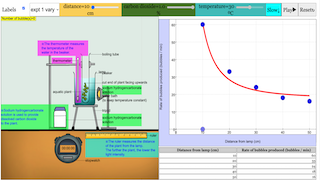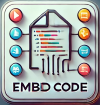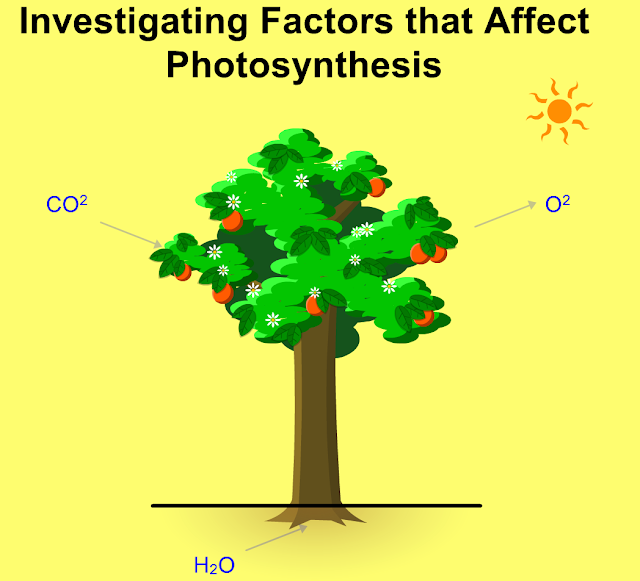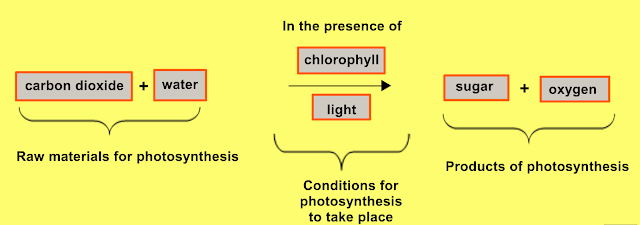https://iwant2study.org/moodle402/mod/laejss/view.php?id=51
Translations
| Code | Language | Translator | Run | |
|---|---|---|---|---|
 |
||||
Credits



This email address is being protected from spambots. You need JavaScript enabled to view it.; Francisco Esquembre; Félix J. García Clemente; based on ideas by Kristine, WB and Don; fazli1702
SLS lessons
- https://vle.learning.moe.edu.sg/moe-library/lesson/view/approved/cc2dc60b-3589-4679-bb9d-94b3f850457f/page/69678604 Investigating Photosynthesis [Sec Bio]
- https://vle.learning.moe.edu.sg/moe-library/lesson/view/approved/b6b3fb32-3276-41f7-835a-d12588c75f1c/cover Investigating Factors Affecting Photosynthesis [Sec Bio]
Sample Learning Goals
[REVISED SYLLABUS] This lesson is for Upper Secondary students taking Biology [G3 Biology] for the 2023 syllabus.
Pre-requisites
You should have an understanding of the following:
- The word equation for photosynthesis
- During photosynthesis, chlorophyll absorbs energy from light to make glucose from carbon dioxide and water
- The effects of temperature on enzyme-catalysed reactions
Objectives
At the end of this lesson, you should be able to:
- Investigate and discuss the effects of varying light intensity, carbon dioxide concentration and temperature on the rate of photosynthesis (e.g. in submerged aquatic plant)
- Discuss light intensity, carbon dioxide concentration and temperature as limiting factors on the rate of photosynthesis
Bubbles are given off by the plant through Photosynthesis. By measuring the rate at which the bubbles are produced it is possible to tell how fast the plant is photosyntheising (measuring amount of oxygen bubbles produced per minute).
Expt 1:light intensity affects the rate of photosynthesis
Expt 2: percentage of dissolved Carbon Dioxide in water affects rate of photosynthesis
Plants need energy to carry out important life processes like growing. Unlike animals, they do not hunt for food or eat. Instead, plants make their own food through a process called Photosynthesis. Photosynthesis takes place in the leaves of the plant.
To make food by photosynthesis, plants need water and carbon dioxide as raw materials to make food. Plants also need chlorophyll to trap light energy. the light energy is then used to combine water and carbon dioxide to produce sugar. Oxygen is also released during photosynthesis.
chlorophyll
Water + Carbon Dioxide ------------------> Sugar (Glucose) + Oxygen
light
chlorophyll
6 CO2 + 12 H20 ------------------> C6H12O6 + 6 O2 + 6 H2O
light
Photosynthesis occurs in two stages: light-dependent stage and light-independent stage
light-dependent stage:
Light energy is absorbed by chlorophyll and converted to chemical energy.
Light energy is required to split water molecules into oxygen and hydrogen. (i.e. photolysis of water)
Activity 1 light intensity affects the rate of photosynthesis
For Teachers
Investigate how light intensity affects the rate of photosynthesis
Investigate how percentage of dissolved Carbon Dioxide in water affects rate of photosynthesis
 |
|
Factors Affecting Photosynthesis JavaScript HTML5 Applet Simulation Model investigate intensity of light vs number of oxygen bubbles |
- Move the slider for Light Intensity to the first unit.
- Click on Start Experiment.
- Observe what happens to the plant and answer the questions below.
-
Questions
- What do you observe at the plant?
- What is the gas that is given out?
______________________________________________________________
- What does the amount of gas given out tell you about the rate of photosynthesis for plant?
______________________________________________________________
______________________________________________________________
- What is the variable in this experiment?
______________________________________________________________
-
Investigating
Instructions
- Move the slider for Light Intensity to the first unit.
- Press Play Experiment and let the experiment run for 1 minute on the stopwatch on the bottom right corner.
- After 1 minute, the total number of bubbles given out by the plant will be shown on the box marked Number of Bubbles on the top right corner of the simulation..
- Click Record to store the data of the Number of Bubbles given out by the plant in 1 minute in the table on the right panel.
- Select the next Light Intensity to the second unit
- Repeat this experiment for units 2 to 6.
- suggested sample data is provided below, please remove it before giving it to the students.
-
Light Intensity / Units Number of Bubbles given out by the plant after 1 minute0 0 1 2 3 4 5 6
Plotting the Graph
Instructions
- Click on Graph option of the dropdown menu.
- The values that you have recorded using the simulation will be automatically plotted, which is the graph of Number of Bubbles against Light Intensity.
- Print out the graph that you have plotted and paste it in the space below.
Questions
- Describe the graph between 0 and 4 units of light intensity.
______________________________________________________________
- What does this tell you about the relationship between light intensity and the rate of photosynthesis between 0 and 4 units of light intensity?
______________________________________________________________
______________________________________________________________
- What does this tell you about the relationship between light intensity and the rate of photosynthesis when the light intensity is more than 4 units?
______________________________________________________________
______________________________________________________________
- It is usually difficult to get accurate readings when this experiment is carried out in a school laboratory. Give one reason why this is so.
______________________________________________________________
______________________________________________________________
- Suggest one way to overcome the difficulty that you have stated above.
______________________________________________________________
______________________________________________________________
Activity 2 percentage of dissolved Carbon Dioxide in water affects rate of photosynthesis
 |
| Photosynthesis JavaScript HTML5 Applet Simulation Model investigate percentage of dissolved carbon dioxide vs number of oxygen bubbles https://sg.iwant2study.org/ospsg/index.php/573 |
Getting Started
Instructions
- Select Expt 2 on the option on top of the simulation view.
- Move the vertical slider for percentage of carbon dioxide dissolved in the water to 0.05%.
- Click on Play button to start the virtual experiment.
- Observe what happens to the plant and answer the questions below.
Questions
- What do you observe at the plant?
______________________________________________________________
- What is the gas that is given out?
______________________________________________________________
- What does the amount of gas given out tell you about the rate of photosynthesis for plant?
______________________________________________________________
______________________________________________________________
- What is the variable in this experiment?
______________________________________________________________
Investigating
Instructions
- Move the vertical slider for percentage of carbon dioxide dissolved in the water to 0.05%
- Press play button to start the Experiment and let the experiment run for 1 minute on the display on the bottom right corner.
- After 1 minute, the total number of bubbles given out by the plant will be shown on the box on the top right corner marked Number of Bubbles which appears on the top of the plant.
- Click on store data to record the Number of Bubbles given out by the plant in 1 minute in the table on the next page.
- Repeat this experiment for 0.1%, 0.15%, 0.2%, 0.25% and 0.3% of carbon dioxide dissolved in water.
| Percentage of Carbon Dioxide dissolved in the water / % |
Number of Bubbles given out by
the plant after 1 minute
|
| 0.00 | 0 |
| 0.05 | |
| 0.10 | |
| 0.15 | |
| 0.20 | |
| 0.25 | |
| 0.30 |
Plotting the Graph
Instructions
- Click on option on the top dropdown menu to Graph2.
- With the values that you have recorded in the virtual simulator, the plot the graph of Number of Bubbles against Light Intensity as plotted automatically for you.
- Print screen the Graph2 that you have plotted and paste it into the space below.
Questions
- Describe the graph between 0% and 0.15% of carbon dioxide.
______________________________________________________________
- Between 0% and 0.15% of carbon dioxide, what can you tell about the relationship between carbon dioxide concentration and rate of photosynthesis?
______________________________________________________________
______________________________________________________________
- Describe what happens to the graph after 0.15% carbon dioxide.
______________________________________________________________
______________________________________________________________
- What does this tell you about the relationship between the carbon dioxide concentration and rate of photosynthesis when carbon dioxide concentration exceeds 0.15%?
______________________________________________________________
______________________________________________________________
Video
- Real Setup Video demo - Photosynthesis and respiration with Cabomba pondweed by Science and Plants for Schools
- Hands-on Demo Photosynthesis Lab Walkthrough by Bozeman Science
- Explanation walk through IGCSE 2.10. Rate limiting factors in photosynthesis. Ms Cooper by Ms Cooper's IGCSE Biology
- https://www.youtube.com/watch?v=hITp-60mqzg Effect of a Varying Light Intensity on Rate of Photosynthesis-Updated by Biology Bugbears
Version:
Other Resources
- https://www.reading.ac.uk/virtualexperiments/ves/preloader-photosynthesis-full.html
- https://ggbm.at/sAhqyWrS by Vincent lew
- https://www.globalcitizen.org/en/content/bionic-leaf-turn-sunlight-into-fuel/
- https://www.geogebra.org/m/sAhqyWrS
end faq
{accordionfaq faqid=accordion4 faqclass="lightnessfaq defaulticon headerbackground headerborder contentbackground contentborder round5"}
- Details
- Written by Fremont
- Parent Category: Interactive Resources
- Category: Biology
- Hits: 4044












